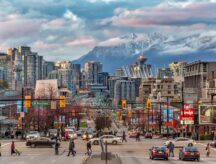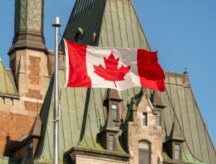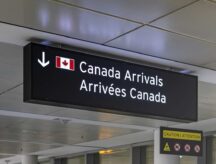Canada extending border closure with U.S. another 30 days
The Canada-U.S. border will remain closed until December 21.
Both Prime Minister Justin Trudeau and Public Safety Minister Bill Blair confirmed the news on Twitter. The new Order in Council is being updated to roll travel restrictions over for another 30 days. U.S. travellers may not come to Canada for tourism, shopping, or entertainment.
Update on the Canada-US border: We’ve extended the current border measures by another 30 days. Non-essential travel between our two countries remains restricted until at least December 21st.
— Justin Trudeau (@JustinTrudeau) November 20, 2020
We are extending non-essential travel restrictions with the United States until December 21st, 2020. Our decisions will continue to be based on the best public health advice available to keep Canadians safe.https://t.co/EZ3pi3asJr
— Bill Blair (@BillBlair) November 19, 2020
In order to come to Canada from the U.S., travellers need to be exempt from travel restrictions, or coming for a non-optional, non-discretionary reason. Most travellers must also carry out the mandatory 14-day quarantine period.
Canadian citizens, permanent residents, immediate family members, approved permanent residents from the U.S., and work permit holders are among the main exemptions to the travel restrictions.
Canada has loosened travel restrictions since they were first implemented in March 2020. As of October, extended family members of Canadians and permanent residents are allowed to cross the border, as long as they are staying for at least 15 days. Extended family includes grandparents, grandchildren, siblings, non-dependent children, and certain dating partners.
Find out if you’re eligible for Canadian immigration
International students are also exempt if they are going to a Designated Learning Institution with a government-approved coronavirus-readiness plan. Earlier this month, the government released a guide for international students travelling to Canada during the pandemic.
Also, it is possible to come to Canada for compassionate reasons, such as a funeral, to take care of a sick loved one, or to see someone in their final moments of life. These travellers can apply to be exempt from quarantine.
Travellers to Alberta may also be allowed shorter quarantine times if their coronavirus test results come back negative. All other travellers who are not exempt from mandatory quarantine must self-isolate for 14 days. They also need an adequate quarantine plan in order to cross the border. The final decision on who can enter Canada rests with border officials.
There has been an 80 per cent drop in land border crossings compared to the same period last year, according to Canada Border Services Agency's weekly traveller statistics for November 9 to 15. Most of this drop is represented in non-commercial travel.
Find out if you’re eligible for Canadian immigration
© 2020 CIC News All Rights Reserved
- Do you need Canadian immigration assistance? Contact the Contact Cohen Immigration Law firm by completing our form
- Send us your feedback or your non-legal assistance questions by emailing us at media@canadavisa.com







